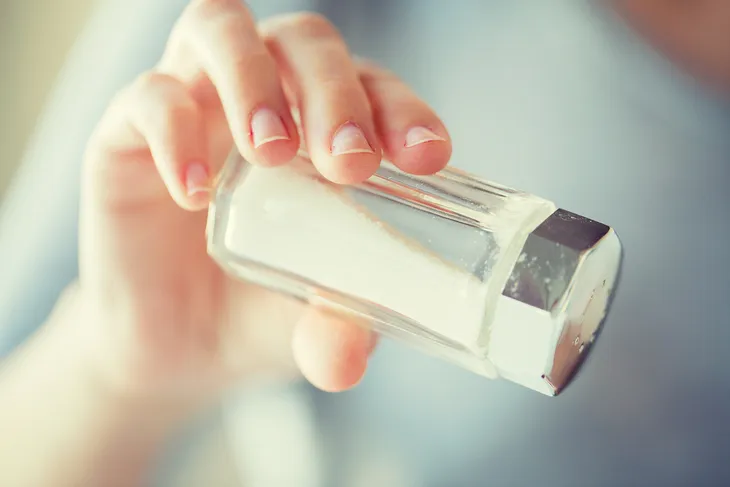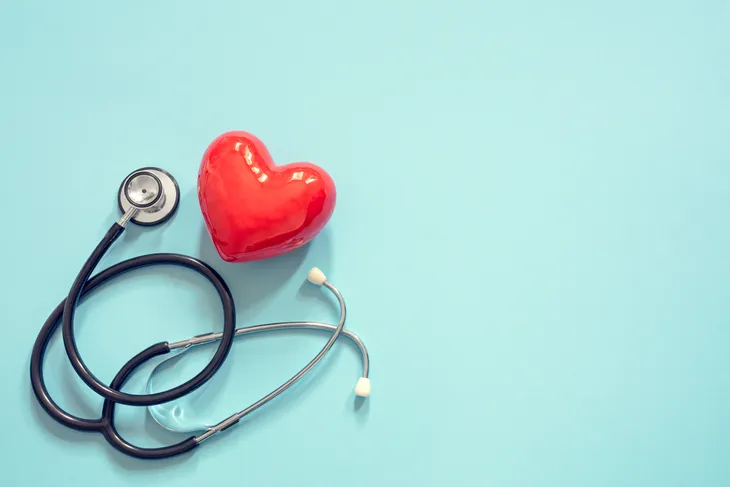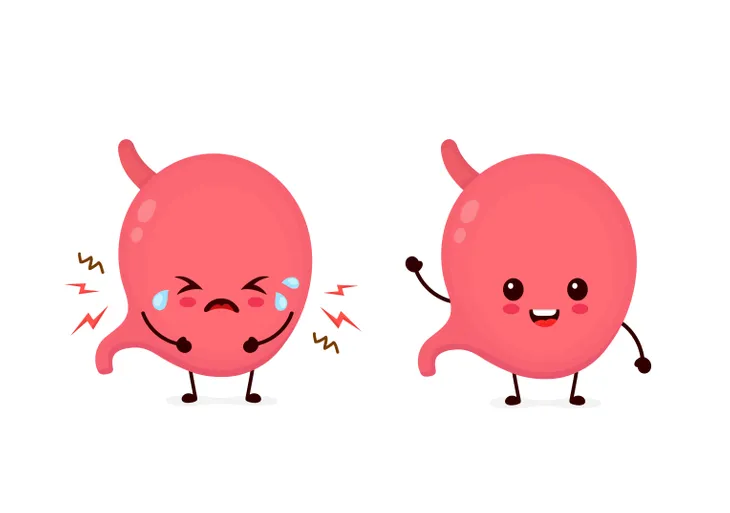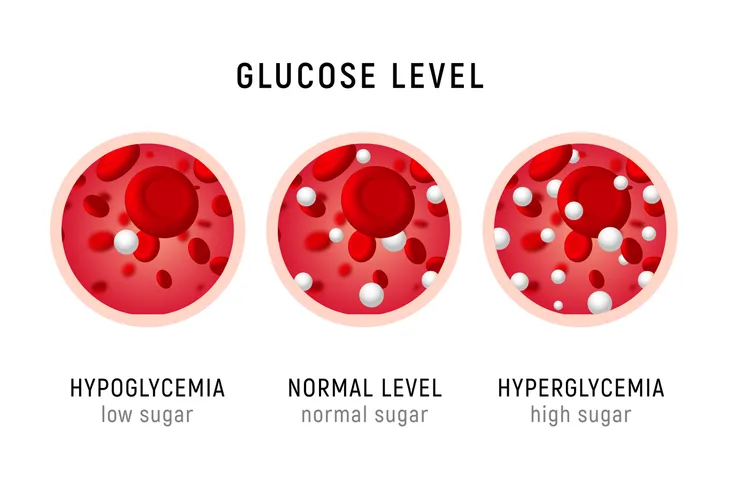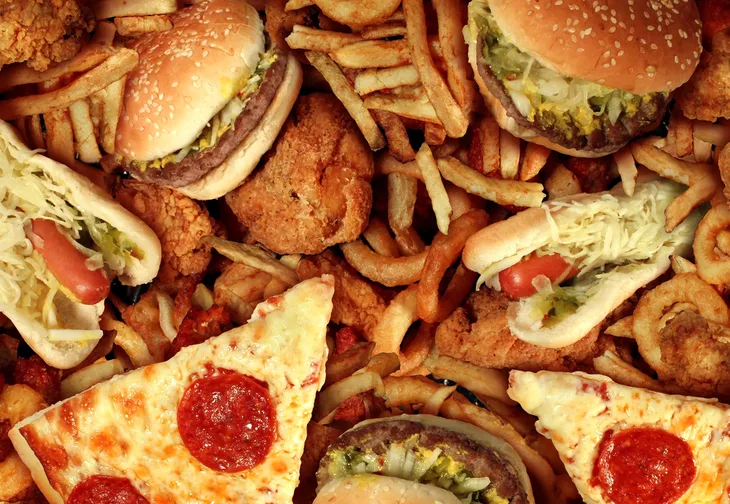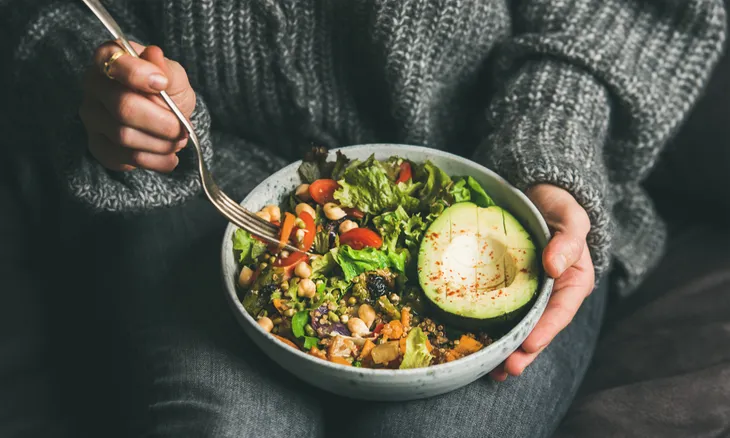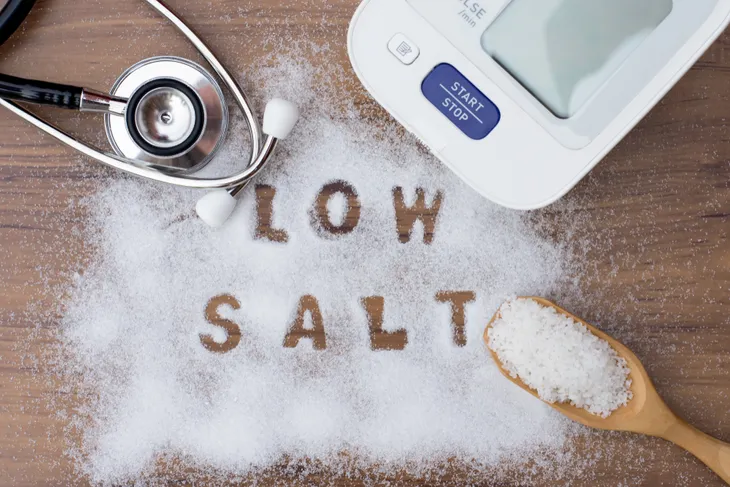Whether we take the necessary steps or not, we’re all looking to lead a healthier, more fulfilling life. Life can sometimes get in the way of CrossFit classes and meal prep Sundays. But altering your diet, your health, and your life happens by making small, healthy decisions over time. Reducing your sodium intake is one such healthy decision. Choosing to consume less salt doesn’t take a huge time commitment, and the benefits to your overall health can be profound.
How Much Is Too Much?
If you’re a frequent ActiveBeat reader, then you’re no doubt used to hearing us beat up on the standard American diet. Sorry, not sorry. Modern society’s obsession with fast food, red meat, sugary sodas, and alcohol flat out isn’t healthy, and it’s our job to explain why.
Not to be overshadowed by booze and root beer, the abundance of salt in most of what we eat is incredibly problematic. Current federal guidelines tell us to avoid exceeding 2,300-milligrams of sodium per day, but do we listen? Of course not! The average American consumes 3,500-mg per day.
The consumer can’t hold all the blame though. Sodium is in just about everything, and eating healthy can get expensive. So, give yourselves a break, and read along for the benefits of lowering your sodium intake, and a few tips on how to make it work for you.
May Reduce Blood Pressure
There’s an overwhelming scientific connection between salt consumption and elevated blood pressure levels. High blood pressure strains your artery walls and can lead to significant, long-term consequences if left unchecked.
It’s not all bad news though. Reducing your salt intake today has been shown to produce positive results in as little as a week or two. It’s never too late to start, and there’s clearly a lot to gain from a low-sodium diet.
Can Improve Diet Quality
Making the small, everyday decision to lower your sodium intake can, over time, lead to a complete overhaul of your dietary habits. Cutting out fast food, frozen dinners, and potato chips in favor of heart-healthy alternatives is habit-forming if done for long enough.
Before you know it, you’re eating homemade soups and salads for lunch and benefiting from all your newfound energy. A healthy diet, and a healthy life, are the product of many small victories over the pastry counter. So, start by lowering your sodium, and discover where your newfound strength might take you.
It’s Better for Your Heart
High blood pressure, also known as hypertension, dramatically increases an individual’s risk of cardiac arrest and heart failure. We’ve already established a link between excess sodium consumption and hypertension.
Salt increases the amount of water in your bloodstream, which increases your blood volume, and causes high blood pressure. For this reason, reduce your salt intake for your heart health.
May Help Decrease Risk of Cancer
There are quite a few studies that link excess salt consumption to certain types of cancers too. Most notably stomach cancer or gastric cancer.
In fact, this study calculated that every 5-gram increase of dietary salt from high-salt processed foods effectively increases a person’s risk of developing cancer by a shocking 12-percent.
May Decrease Your Risk of Diabetes
One peripheral benefit of a low-sodium diet is a lowered risk of developing diabetes. After all, heavily processed foods, such as pre-packaged meals and convenience foods are loaded with things that can be a lot worse than sodium.
Eliminating those items from your diet to curb your salt consumption often leads to a new meal plan that contains less of the stuff that often leads to the development of diabetes down the line. Talk about a win-win!
Promotes Stronger Bones
When we consume a diet rich in processed, salt-rich foods, our bodies go into protection mode. When broken down in the body, salt becomes sodium and chloride. Most of the excess chloride is filtered through our kidneys. Eat enough salt though, and our kidneys struggle to keep up.
When that happens, the body pulls base stores from our bones to neutralize the excess acid. Which means less calcium. Over time, this calcium deficit can cause kidney stones, osteoporosis, and even a loss of muscle mass.
Reduces Desire for Unhealthy Drinks
Sodium disrupts the balance of fluid in your cells which, among other things, makes you thirstier. It’s natural for thirsty people to reach for the closest drink, which can create a bit of an unhealthy cycle for those of us that aren’t diligently monitoring sodium levels.
If you’re prone to drink unhealthy liquids like alcohol or soda, you’re prone to drink even more of them after you’ve consumed a sodium-rich meal. But, by decreasing your salt today you can lower your craving for unhealthy thirst quenchers.
Improves Memory
A healthy heart is essential to a healthy you. Every function of your body is impacted by your heart’s ability to distribute blood properly. Which is part of the reason why high blood pressure is so insidious. Take your brain for example. It relies on your heart to properly supply it with nourishing blood.
When high blood pressure interrupts that process, it leaves you open to strokes, dementia, and a kind of ministroke called a transient ischemic attack. In the short term, high blood pressure can cause mild cognitive impairment as well. Lowering your blood pressure by adopting a low-sodium diet should cause an uptick in memory function and general understanding.
Foods to Avoid
The Standard American Diet is loaded with salt. As a result, the list of foods to avoid can seem daunting. But rest assured, there are healthy and delicious foods out there if you look hard enough. For now, let’s look at some of the things that you should avoid when trying to maintain a low-sodium diet:
- Fast-food
- Boxed meals (rice, macaroni, and cheese, etc.)
- Pickled vegetables
- Processed meats (bacon, hot dogs, lunch meat)
- Salty snacks (pretzels, salted nuts, chips)
- Cheese and dairy
- Highly salted canned goods (vegetables, meats, and fish)
- Condiments (regular soy sauce, teriyaki sauce, and spaghetti sauce)
Foods to Enjoy
Yes, you can still have fun in the kitchen. In fact, cooking healthy meals for yourself, instead of relying on pre-packed meals, is arguably a lot more fun. When it comes to the kinds of foods that you can enjoy on a low-sodium diet, sticking to whole foods is a great general rule. More specifically though, here are some low-sodium foods that you can enjoy relatively guilt-free:
- Fresh or frozen vegetables
- Fresh, frozen, or dried fruits
- Eggs
- Low-sodium soup
- Bread and baked goods
- Low sodium seasonings
- Unsalted nuts and seeds
- Starchy vegetables (potatoes, sweet potatoes, butternut squash)
- Low-sodium snack foods
- Use condiments sparingly or review the serving size and portion sizes
The Takeaway
Transitioning to a low-sodium diet can seem daunting. Especially after reviewing the list of foods that you should do your best to avoid. But it’s important to keep in mind that any diet requires patience, persistence, and time. It’s ok to phase out high-salt grocery items one at a time. It’s a lot easier that way too.
However you choose to execute this new, low-sodium plan, the important thing is that you do it. The long and short-term effects of high blood pressure are staggering. Don’t wait until it’s too late. Take the steps today to clean up your diet. Your future self will thank you!

